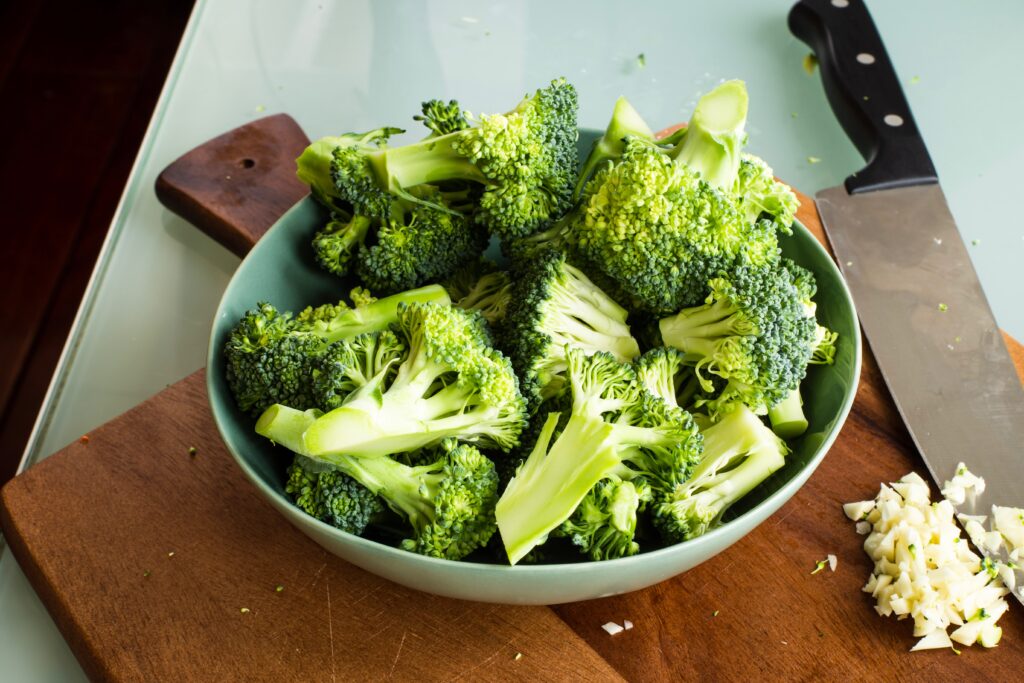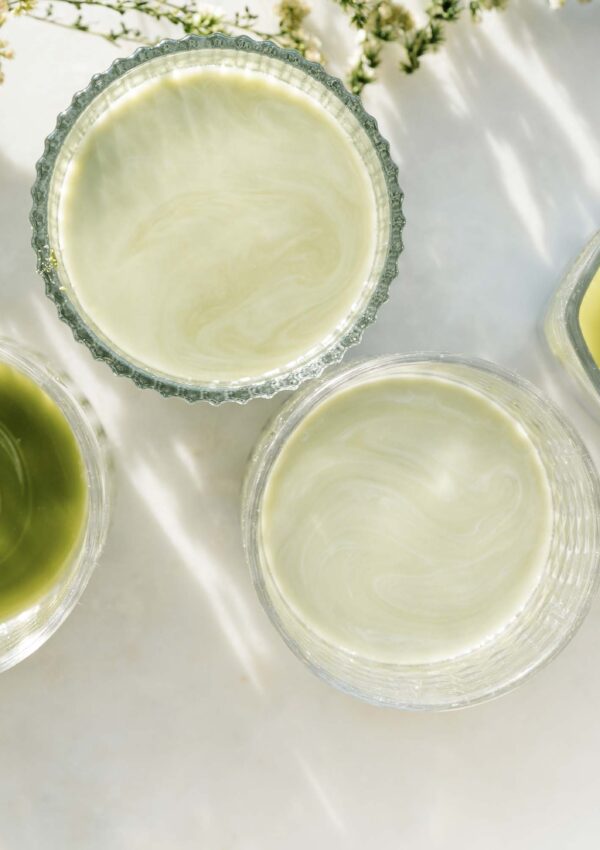A look at the immune system, how it works, and foods that can help support it.

Disclaimer: This post includes affiliate links, and we will earn a commission if you purchase through these links. Please note that We’ve linked to these products purely because we recommend them and they are from companies we trust. There is no additional cost to you.
You may not know it, but your body is engaged in a never-ending battle against pathogens, such as harmful bacteria, viruses, parasites, and fungi that exist everywhere, even lurking on your skin. So your body has an immune system made of tissues, organs, and specialized cells that work around the clock to fight off pathogens and keep you healthy.
For a lot of us, we’re aware of our immune system, but we don’t take much notice of it until something goes awry. It’s easy to have a reactive approach to our immune system, only rushing to its aid and loading it with nutrients after falling ill.
It’s taken a worldwide pandemic for our immune systems to be pushed to the forefront of our health conversations. This is great because “the immune response affects nearly every aspect of our bodies and health,” says allergist and immunologist Heather Moday. The good news, she says, is “our immune system is so incredibly powerful, really more powerful than most drugs available out there.”
The key is supporting it, so when you come into contact with a nasty pathogen that could make you very sick, your immune system is working properly and ready to support you right back.
Adding nutrient-rich foods to your diet can give your immune system a helping hand by equipping it with everything it needs before you get sick.
Here’s what you need to know about the immune system and how you can support it through food.
How the immune system works
Your body’s first line of defense is your innate immune system. It immediately engages with foreign invaders and includes barriers like the skin, mucus membranes and internal defenses, such as phagocytes.
Phagocytes are a type of white blood cell that targets pathogens and ingests or absorbs them. Your immune system also has natural killer cells that can kill body cells infected with viruses.
Your skin and mucous membranes not only provide a physical barrier, but they also have substances, like mucus, that trap pathogens so they can’t continue into your body.
However, if these first barriers are breached, the immune system might turn up the heat — literally — in the form of a fever. Fever can create an inhospitable environment for pathogens so they can’t survive well in your body. The heat from the fever also speeds up your defense cells so phagocytes can quickly rush in and absorb or ingest pathogens while natural killer cells kill off any cells already infected.
Your innate immune system alone may not be enough to fight off pathogens, so the adaptive immune system helps out.
The adaptive immune system uses T-cells and B-cells, which, like phagocytes, are white blood cells. These are called lymphocytes and, rather than consuming pathogens, they make antibodies. These antibodies target specific antigens, which are proteins found on pathogens.
Once the body has encountered a particular antigen, some immune cells with specific antibodies to fight it remain in your system for a long time after recovery. This way, when the body is attacked by that pathogen again, the T-cells and B-cells recognize it, replicate, and destroy it much quicker than before.
Why does the immune system need dietary support?

In our busy lives, our bodies are exposed to many stressors that strain our body systems, including the immune system. Poor sleep, chronic stress, environmental toxins like air pollution, and a low-nutrient diet contribute to suppressed activity and decreased numbers of immune cells.
It’s important to maintain a proactive response to immunity, rather than only providing your immune system with adequate support after you get sick.
Without sufficient nutrients, your immune cells become more sluggish, making them less efficient at fighting off pathogens. They also decrease in number, so your body is left with fewer defenses.
No one food will offer protection for your immune system. But each phase of the immune response requires many micronutrients to do the job properly, such as vitamin C, vitamin D, zinc, selenium, and protein, as well as compounds like glutathione and quercetin.
Here are ten foods that contain these compounds and nutrients that can give your immune system a helping hand.
1. Oranges
Oranges are full of vitamin C, an essential nutrient that your body cannot produce itself, so you have to get it from your diet. It helps the body make white blood cells, and it helps the cells themselves function more effectively and protects them from damage.
Oranges also aid the skin’s defenses through transportation to the skin, where it helps strengthen the skin’s barriers.
2. Broccoli

Broccoli contains many beneficial nutrients, including vitamin C. It also contains vitamin B9, essential for tissue growth and healthy cell functioning. It also contains other useful compounds such as sulforaphane and quercetin.
Sulforaphane is a sulfur-rich compound found in cruciferous veggies, like broccoli. This compound assists the body in making glutathione, which many experts call the “master antioxidant.” Glutathione is essential for healthy immune functioning. It “fine-tunes” the innate immune response and supports the production of immune cells, such as natural killer cells.
Quercetin is a plant compound that works as an antioxidant in your body. It scavenges free radicals, unstable molecules that can cause cell damage.
Try roasting broccoli on a sheet pan with lemon, salt and dill (400 degrees for about 20 minutes). Or adding it to a food processor and adding raw broccoli to your salads.
3. Salmon
Salmon is rich in omega-3 fatty acids, essential fats you can only get from your diet. They keep the immune system functioning well through antioxidant and anti-inflammatory properties. They may also act as signaling molecules in your immune system, allowing quick immune activation and response.
Salmon also contains vitamin D, which helps regulate your immune response and assists your body in producing antimicrobial peptides that help fend off nasty pathogens.
Salmon is also high in protein, another essential nutrient you must get from your diet. Your body requires amino acids and peptides to make white blood cells. High-quality protein, like that found in salmon, provides these building blocks so your body can heal and rebuild new cells.
4. Garlic
As well as enhancing the flavor of many foods, garlic has several immune-supporting properties for a healthy functioning immune system.
Many cultures have used garlic to treat and prevent illness throughout history. While studies have shown it can fight off bacterial infections, other research has shown it may exhibit anti-viral properties to help your body fight off viruses.
Try loading up on garlic in dishes like pasta, soups and tacos.
5. Cherry tomatoes

The compound responsible for cherry tomatoes’ red coloring is lycopene, a powerful antioxidant that protects your cells from oxidative stress. Oxidative stress occurs when too many free radicals are in your body compared to antioxidants.
Antioxidants stabilize free radicals, making them less likely to damage your body’s cells. Consuming lycopene helps increase your antioxidant levels and keep your cells functioning properly.
Cherry tomatoes are another food that contains quercetin to further boost the protective properties for your immune cells.
6. Ginger
Ginger has been a go-to remedy for many people for thousands of years. It contains gingerol, another compound with antioxidant and anti-inflammatory properties. Research has also shown that fresh ginger has antiviral effects against the RSV virus, which can result in respiratory issues. Our favorite way to enjoy ginger is adding to Asian style dishes and drinking a ginger tea with some honey.
7. Chicken
Chicken is another excellent source of protein, helping to provide your body with all those essential amino acids and peptides it needs for building healthy cells.
It’s a complete protein, meaning it gives your body all of your essential amino acids. It also contains histidine, which has antioxidant properties, and research has shown chicken soup may have anti-inflammatory properties that can help with managing respiratory infections.
8. Turmeric
Turmeric contains a compound called curcumin, which research suggests has antiviral effects against a range of viruses. However, when cooking with turmeric, it’s a good idea to consume it with black pepper and a fat source, such as avocado or fish.
Turmeric, alone, is not easily absorbed by the body. Black pepper and fats help make curcumin more bioavailable, meaning your body can absorb it more efficiently to get its maximum benefits.
Black pepper inhibits the liver from processing turmeric, allowing it to stay in your system longer, while fats help it bypass the liver so your body can directly absorb it into your bloodstream.
Try a turmeric latte with turmeric tea, a splash of coconut milk, bit of honey and dash of black pepper.
9. Eggs

Eggs are one of the most nutrient-dense foods on the planet, with experts referring to them as “nature’s multivitamin.” They’re packed with nutrients, such as vitamin A, selenium, choline, and zinc.
Vitamin A plays a vital role in your body’s first line of defense against pathogens through maintaining the mucous membranes in your eyes, gut, lungs, and genitals. It also assists in the formation of white blood cells, so sufficient vitamin A levels are needed to help assist in recovery if you get sick.
Selenium can only be obtained through diet. It has antioxidant properties, and levels that are too low can lead to decreased immune response.
Eggs also contain the most concentrated source of choline in our diets. Choline helps immunity by forming healthy cell membranes and regulating the inflammatory responses of immune cells.
And finally, eggs contain zinc, which keeps your immune system strong by assisting with the function of immune cells. Studies show that zinc can reduce infection risk, promote immune responses, and decrease the duration of colds.
10. Green Tea

Green tea contains epigallocatechin, a powerful antioxidant that helps protect your cells from damage. This compound is also an all-rounder when dealing with pathogens, as studies show it has antiviral properties, antibacterial properties, and antifungal properties.
Try a matcha latte with brewed matcha tea, a large splash of your favorite milk and a spoonful of honey.
Tips for additional immune support
The best way to support your immune system is with an overall healthy lifestyle. In addition to adding in immune-supporting foods, the following tips will keep your immune system primed and ready for action.
Prioritize sleep
The amount of sleep you need depends on your age, but the CDC recommends at least 7 hours for adults 18 years old and over. Prioritizing sleep is essential for immune support. When you sleep, your body makes cytokines, special proteins that fight infections and reduce inflammation.
Research shows sleep helps the body maintain T-cell functioning, and sleep deprivation inhibits your immune responses, making you more likely to fall ill.
Reduce stress

Chronic stress can lead to elevated cortisol levels in your body over long periods, which is detrimental to the immune system. It can reduce the activity of some white blood cells, and it decreases the body’s ability to create certain antibodies to fight pathogens.
While we don’t always have control over the stress levels in our lives, studies show that deep breathing, meditation, and spending time in nature all help lower cortisol levels, which your immune system will repay you for by working harder to keep you healthy.
For more on reducing stress, see our post on How to Reduce Stress with Mindfulness and Meditation.
The bottom line
The immune system is constantly working to keep you healthy and fight off pathogens, but it needs a helping hand. Adding nutrient-rich foods into your diet supports your immune system so it can work efficiently.
Supporting your immune system through combining nutrient intake with good sleep and stress reduction will keep your immune system in good form, so it’s always ready to support you in return.

Take Action
Work to incorporate as many immune boosting foods into your diet. Try a new recipe a week that uses one of these foods. Ginger and turmeric are great in teas and make an easy way to get those daily. Just watch out for the microplastics in teabags. We love Pique Tea, which is triple toxin screened for heavy metals, pesticides, toxic mold and radioactive isotopes. and a great way to make sure your are supporting your immune system daily. With teas like turmeric tea, ginger tea, matcha tea and green mint tea, you can change up your daily immune booster through tea so easy.




Leave a Reply